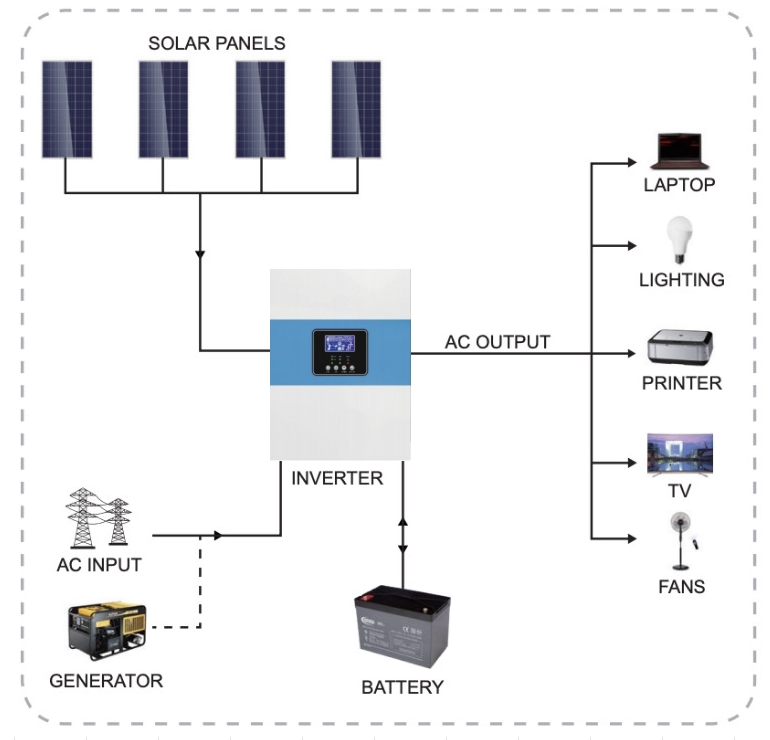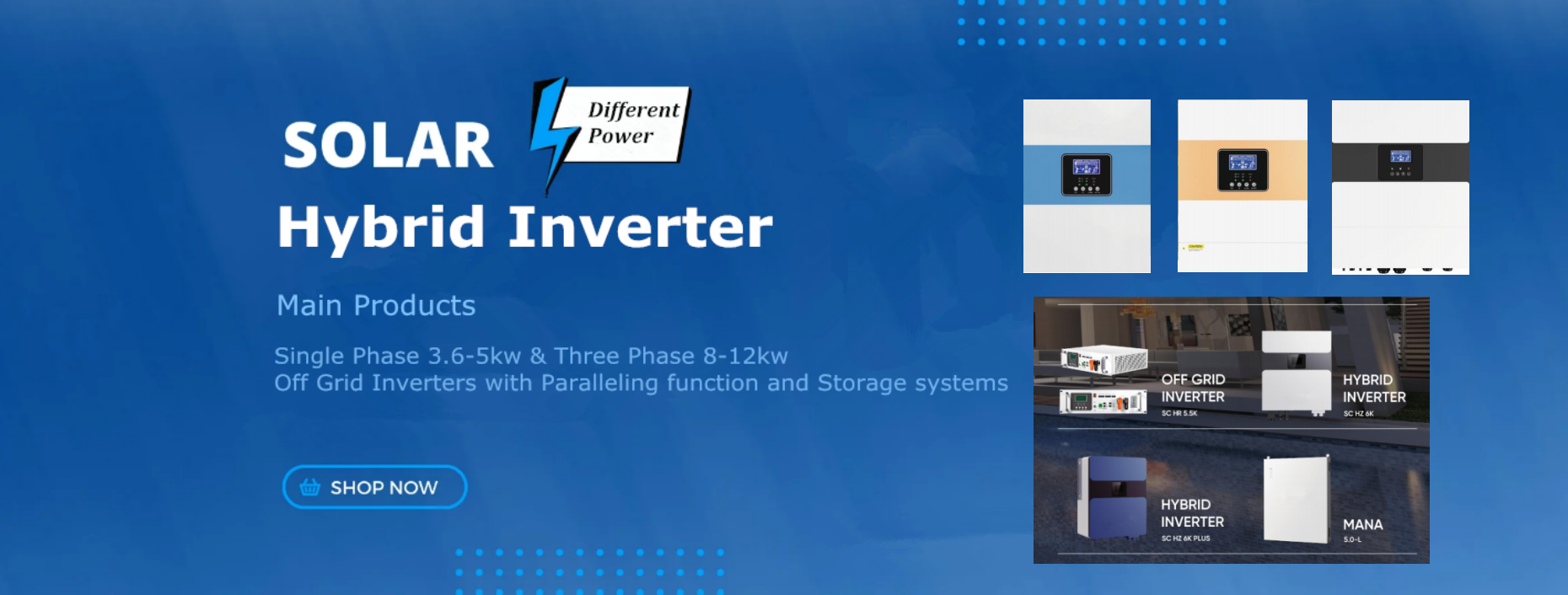What is a Solar Hybrid Inverters ?
丨What is a Solar Hybrid Inverters ?
It is a device that converts the DC power for solar panels into AC electricity to further its use in our homes and businesses. The crucial power flow management system (PFMS) in them controls the flow of power between the solar panels, batteries and grid power. The PFMS sends the excess electricity, if any, produced by the solar panels to the battery bank for storage.
Once the battery bank is fully charged this system sends the excess electricity to the grid. Also, during a power outage, the PFMS switches to the battery bank to provide backup power. So, these inverters are designed to work in conjunction with solar panels, batteries, and grid power to ensure the efficient and reliable operation of a solar power system.

Types of Hybrid Solar Inverters
1. Grid-Tie Hybrid Inverters: These inverters seamlessly integrate solar power and grid electricity, optimizing energy flow between panels, batteries, and the grid while potentially reducing electricity bills through net metering.
2. Grid-tie inverters with battery backup: They are used in hybrid solar systems that are connected to the grid and have batteries as a backup power source. With them we can make use of stored energy from the batteries during power outages or during periods of high electricity demand. They can seamlessly switch between grid power and battery power as needed, providing a reliable and uninterrupted power supply.
Hybrid solar inverters have various features that optimize their performance and longevity. Some of these features are described below:
· Battery management system: It optimizes the charging and discharging of batteries, which extends their lifespan and ensures efficient charging.
· MPPT charge controller: It helps in extracting maximum power from the solar panels and transfer it to the batteries ultimately helping in the optimization of battery charging.
· Power flow management system: As described above, it controls the flow of power between the solar panels, batteries, and grid power, ensuring efficient system operation and preventing wastage of excess power.
Apart from the features listed above it has other important traits like remote monitoring, overload and short-circuit protection and automatic voltage regulation, which make them even more efficient and reliable.
Benefits of Hybrid Inverters
· They offer a cost-effective and reliable solution for homes and businesses as they reduce dependency on grid power and help in reducing electricity bills.
· Efficient utilization of solar power by combining both grid-tied and off-grid capabilities.
· Ability to sell excess power back to the grid, resulting in potential financial benefits.
· Scalability and flexibility, allowing for easy expansion to accommodate increased energy demands.
· Hybrid solar power systems also offer energy independence, as they provide a backup power source and reduce the dependency on grid power.
Going Off-Grid via Hybrid Inverters
It is certainly viable to go off-grid using hybrid solar inverters. In a hybrid solar inverter, as mentioned earlier, has PFMS controlling the power flow between the solar panels, batteries and grid power thus combining the functionalities of a standard solar inverter and a battery charger. The batteries in an off-grid hybrid solar system store excess energy generated by the solar panels. This stored energy can be used when there is no sunlight or during times of high energy demand.
It’s important to note that going off-grid with a hybrid solar inverter requires careful planning and consideration of your energy needs. Thus, it is generally recommended to consult with a professional solar installer or engineer to design and implement an off-grid solar system tailored to our specific needs.
Some Drawbacks of Hybrid Inverters
· Cost: Hybrid solar inverters can be more expensive than standard solar inverters.
· Complexity: Hybrid solar inverters require additional wiring and connections, increasing system complexity.
· Efficiency: Hybrid solar inverters may have slightly lower efficiency compared to dedicated solar inverters.
· Maintenance and monitoring: Hybrid solar inverters with batteries require regular maintenance and monitoring efforts.
· System design complexity: Designing an off-grid system with a hybrid solar inverter can be challenging and requires careful consideration.
Despite these drawbacks, hybrid solar inverters continue to be a popular choice for off-grid and hybrid solar systems due to their ability to integrate solar power generation with energy storage.













































































































